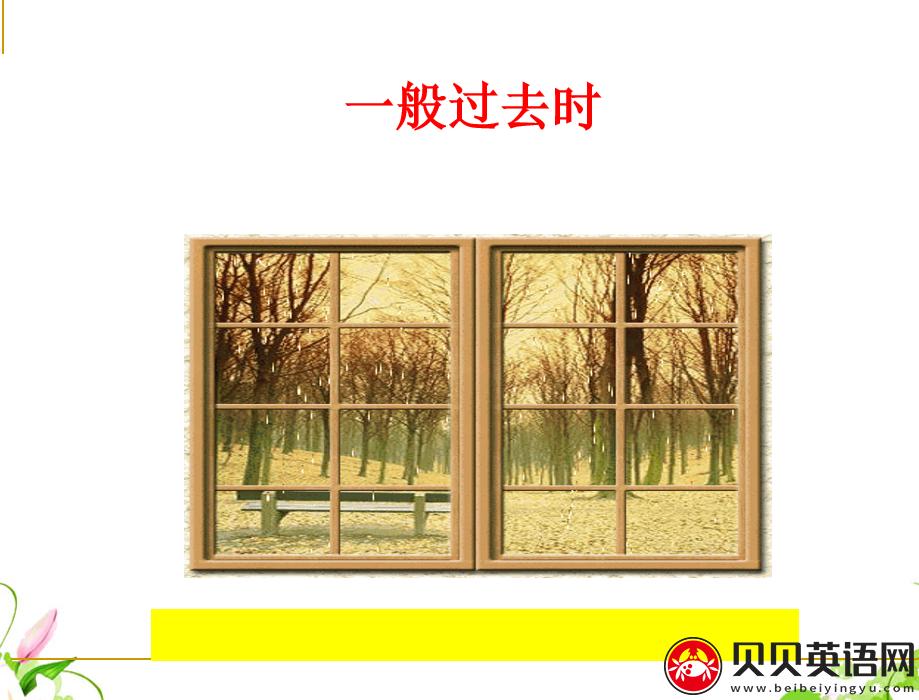欢迎访问贝贝英语网!

肯定句:It was very hot yesterday.否定句:It was not very hot yesterday.
wasn't
一般疑问句:Was it very hot yesterday?答语:Yes, it was./ No, it wasn't.
特殊疑问句How was the weather yesterday?=What was the weather like yesterday?
由以上例子可知,含有be动词was/were的
一般过去时的句子,变否定句时是在
was/were后面加not,可缩写为wasn’t/weren’t;变一般疑问句时是把was/were
提至主语前
其肯定回答为:Yes,主语+was/were;
否定回答为: No,主语+wasn’t/weren’t.
1.含be动词的一般过去时的句式结构:
1)肯定句:主语+be(was/were)+表语(n., adj.等) They were in the classroom.
2)否定句:主语+be(was/were)+ not+表语 They weren't in the classroom.
3)一般疑问句:Was/Were+主语+表语? Were they in the classroom?
Yes, they were./No, they weren't.
4)特殊疑问句:疑问词+was/were+主语? Where were they ?